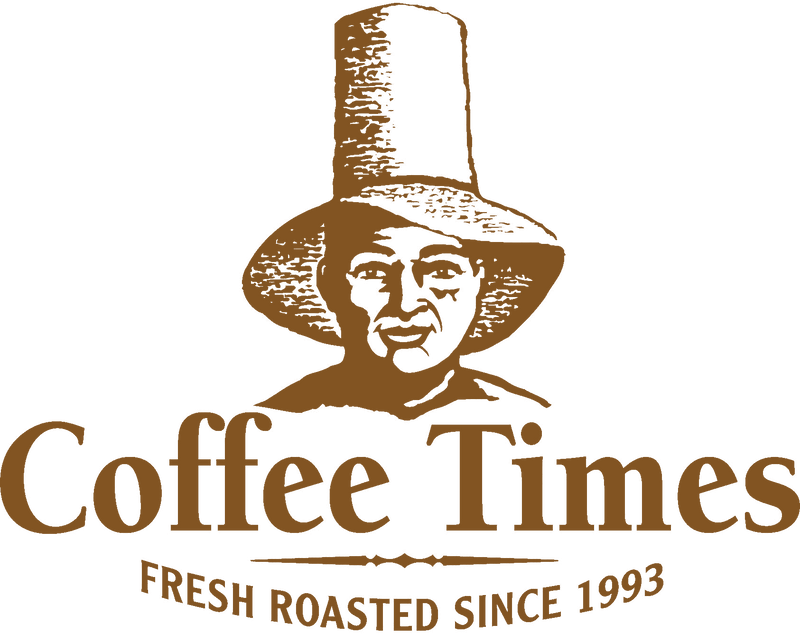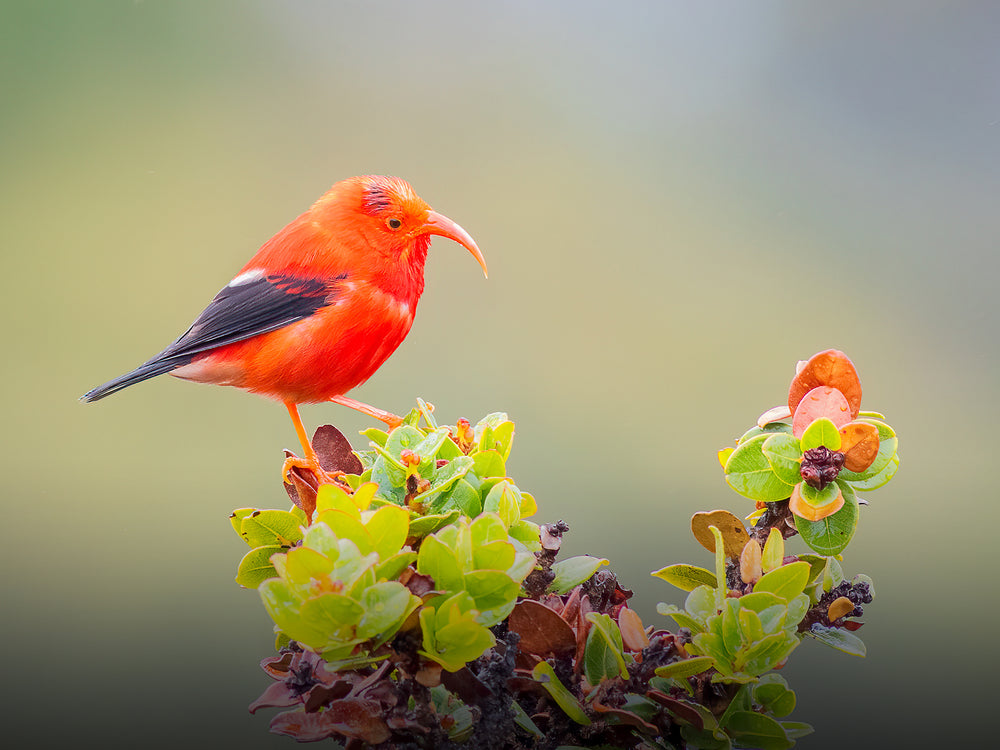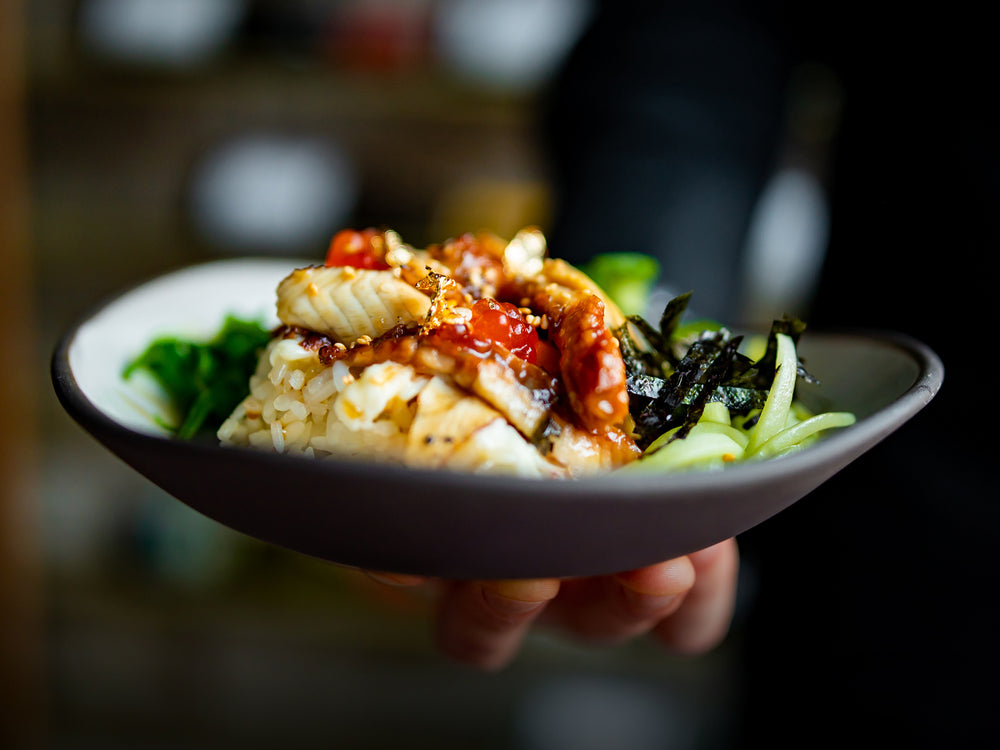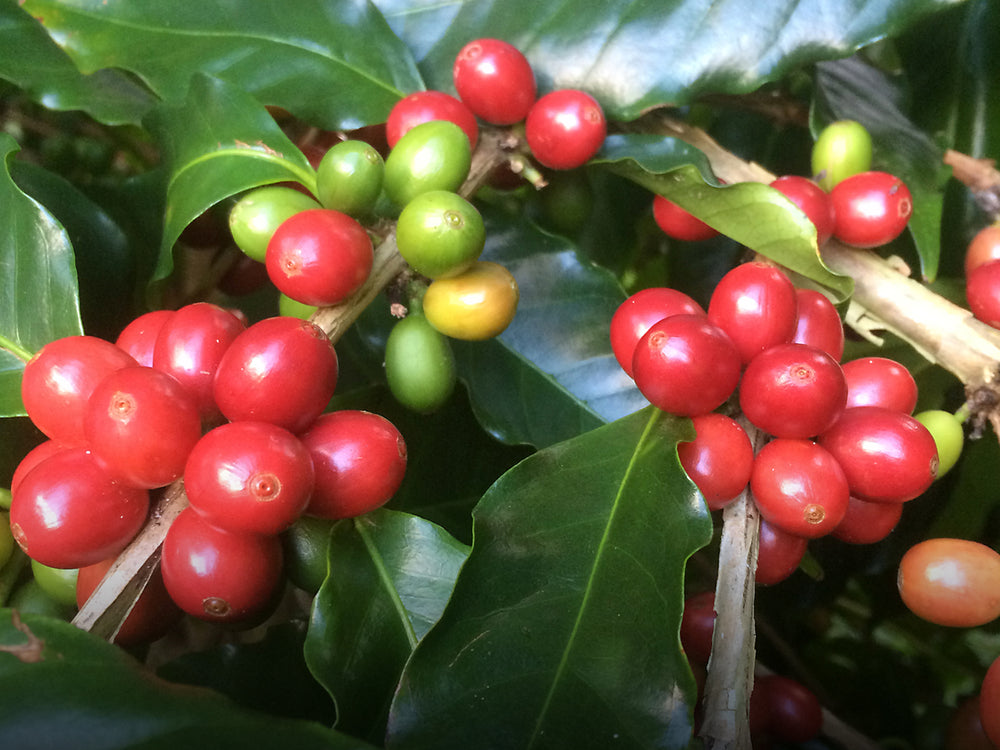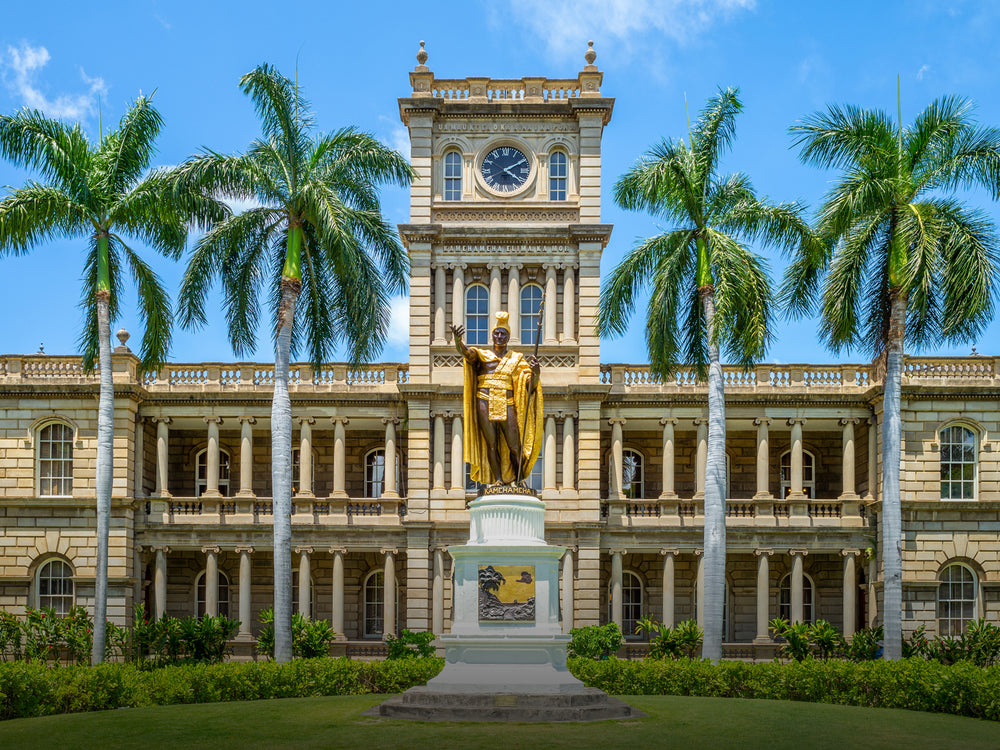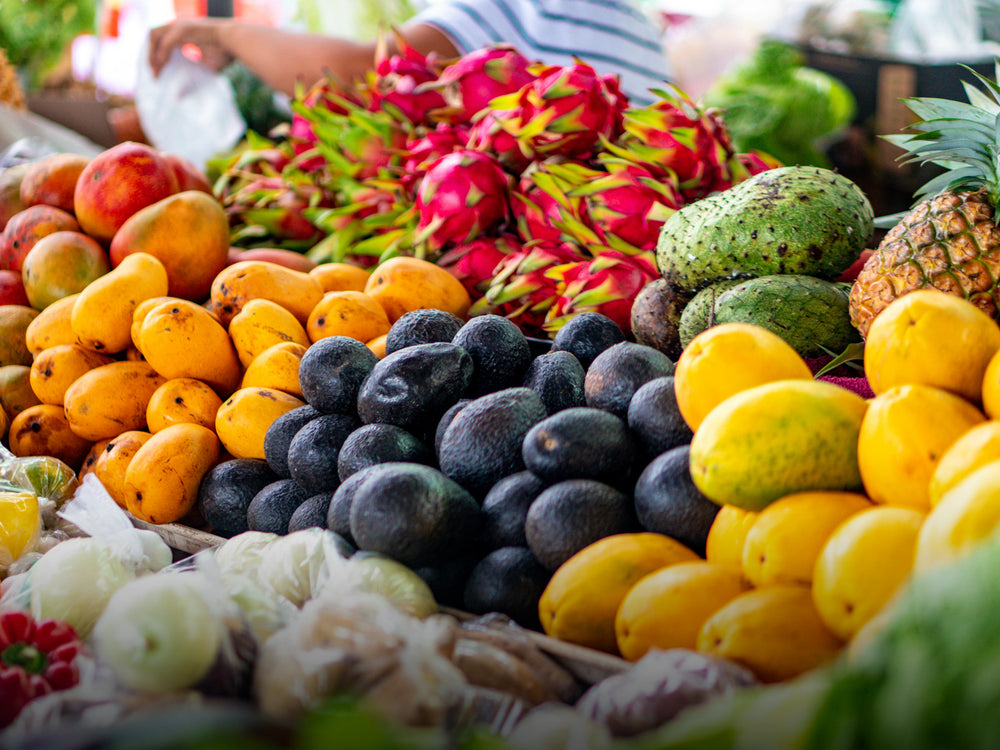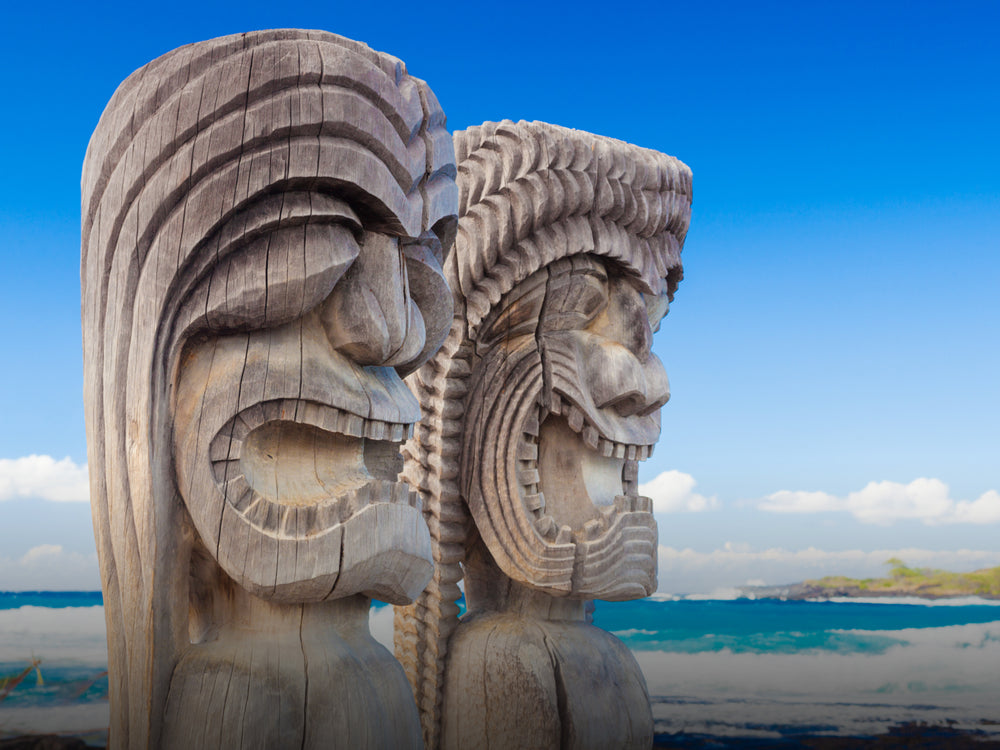100% Kona Coffee Industry Strengthens
Three Long Time Processors Lead the Way
by Patti Stratton
Coffee in Kona has had a long history since the original plant was brought to the area by missionary Samuel Ruggles in 1828 and replaced by a Guatemalan variety introduced in 1892. It's the soil and climate that determines the taste of any coffee, and this plant has thrived in the acidic soil on the gentle slopes of Mauna Loa volcano drenched by daily showers during the wet Summer season.
When savoring a cup of Kona coffee, you might not realize what it takes to process coffee cherry to a bean ready for roasting. Coffee processing has come a long way from the early days as related by Baron Gato in an interview with G. Machado describing coffee processed by the Hawaiians in the late 1800's:
"Cherry coffee was usually spread thinly on a poi board. By jerking a round smooth stone about the size of an ordinary coconut over them from one end of the board to the other, the pulp was removed without much difficulty. The pulped coffee was dried without being washed or fermented. To remove the parchment skin, the dried parchment was subject to pounding in a wooden or stone container using a long cylindrical stone 14 inches long and three inches across at the base with a slightly narrowed end where it was held by two hands."
Today, the red cherry skin is removed by a mechanical pulper and the layer of natural sugar mucilage is allowed to ferment for several hours. After washing, the coffee is called parchment and allowed to sun dry for three to five days depending on weather conditions. Then the parchment and silverskin layers are removed in the dry milling process. The green bean is sized, graded and certified by the Hawaii Department of Agriculture.
At this point, the bean is ready for roasting, and those of us who enjoy the unique smooth Kona flavor can get involved by making a cuppa!
There are three major coffee processors on the Big Island who use this time-tested process to offer a truly tasty cuppa of Kona coffee: Captain Cook Coffee Company, Greenwell Farms and Bay View Farm.
The Captain Cook Coffee Company was the oldest and largest coffee company in Kona for many years. The original Captain Cook Coffee Company, related to the current company in name only, got its start in the 1880's when British immigrant Robert Robson Hind acquired land in Kona for cultivating coffee. The first Robert Hind had large sugar cane holdings in the Kohala District near Hawi.

Left: Field Inspector John DeAnzo of the State of Hawaii Dept. of Agriculture finds time to shaka. Right: Malcom "Mac" Palea, Captain Cook Coffee Company.


Left: Mark Berield, Captain Cook Coffee Company. Right: Sharon DelaCruz, Captain Cook Coffee Company.
When Robert retired, the management of the business went to his son John Hind who, in 1905 bought an old pineapple cannery and converted it into a coffee mill. By 1910, the company controlled 1,200 acres of coffee in the Kona district, much of this leased by Captain Cook Coffee Company from land owners and then subleased to predominantly Japanese farmers who each maintained about five acres of coffee farmed exclusively for Captain Cook Coffee Company. The company, also known as '4C', had three coffee mills and shipped 23,500 bags of 'clean' green coffee beans.
John's son, Robert Retson Hind bought out other members of the family in 1927 to gain full control of the Captain Cook Coffee Company, which he managed from his office in Honolulu.
When land leases expired in the 1950's, land owners allowed tenant farmers to take over their leases directly. As a result of this, Hind Honomalino Ranch land was cleared and planted in coffee by 1953, and parcels of land were offered on lease to prospective coffee farmers. The Hind family eventually gave up on coffee and their Napoopoo mill became the Kona Coffee Cooperative, which bought cherry from coffee growers in Kona.
In 1984, south Kona resident Jeff Citron, in partnership with a group of Honolulu doctors, revived the dormant Captain Cook Coffee Company in name only. Their Kainaliu dry mill operation bought cherry, subcontracting the wet milling process out. A California coffee importer, Cal Trading started selling the coffee produced by Captain Cook Coffee Company in 1987.
In 1991, the doctors divested their shares to three companies in the coffee business; these included two California operations, Cal Trading in Burlingame and Mountanos Inc. of San Francisco, and Canterbury Coffee Company in Vancouver, Canada. Over the years, a wet milling facility was constructed in Honaunau and in 1997, the dry mill in Kainaliu was completely modernized.
Steve McLaughlin of Cal Trading became the sole owner of the Captain Cook Coffee Company in June of 2000. Steve first entered the coffee business in 1970 working for one of the largest coffee importing firms, E.A. Johnson & Company in San Francisco. During his extensive travels to Central and South America and Asia, Steve became a coffee expert and started his own coffee importing business, Cal Trading Company, in 1994. Steve has served on the board of directors of the National Coffee Association and the Pacific Coast Coffee Association.
In 1998 the two McLaughlin sons joined their father in the coffee trade. Steve Jr. is president of Cal Trading Company responsible for importing gourmet specialty coffees and Chris is president of Captain Cook Coffee Company dealing in only Kona green bean sales.
Currently, Captain Cook Coffee Company buys cherry from approximately 450 Kona coffee farmers and is one of the leading exporters of 100% pure Kona Coffee.
What does Steve McLaughlin think of the future of Kona coffee? "The industry is making a come back after the Kona Kai scandal; and now that all green coffee is certified by the Hawaii Department of Agriculture, the consumer knows that they are receiving 100% Kona. I am optimistic about the future of Kona coffee and our goal as a processor and exporter is to continue to find new markets for this unique coffee."
Henry Nicholis Greenwell left England as a young man and sailed to Hawaii in 1850. He became known as the most prominent coffee shipper of Kona Coffee and, in 1873, received recognition at the Kaiser's Exposition during the World's Fair in Vienna for coffee excellence. According to Thrum's Annual of 1876, the Greenwell trade mark was sufficient to guarantee quality coffee as he took 'great pains in his selection for the market.'
The Greenwell Farms family, Clockwise from top left: Cici, Tom, Steve, Michele and Jean.

Hand picked Kona coffee cherry arriving at Greenwell Farms.

Tom Greenwell overseeing coffee coming off his mill's gravity table. Density.... and yes.... smell are all important factors in producing quality 100% Kona coffee.

Sun drying coffee on the farm's hoshidana (sliding roof system).
Elizabeth Caroline Greenwell, Henry's wife, motivated the first planting of coffee trees on Greenwell land in 1903 and their oldest son, rancher William Henry, was the first generation to lease land to coffee farmers. Grandson, Norman Greenwell, who was also a cattle rancher and dairy man, began planting coffee for future production in 1985. In 1987, the first coffee from the estate was processed.
In 1992, Henry Nicholis's great grandson, Tom Greenwell took over as farm manager and their dry milling operation was installed. Greenwell Farms started processing coffee cherry for other farmers including wet milling, sun drying, and dry milling to green bean.
When visitors arrived at the farm in 1993, they were offered a tour of coffee production. In response to visitor interest, an outside tasting facility and retail coffee sales operation were added in 1995. Greenwell Farms began roasting coffee in 1997 and last year increased roasting capacity by 400% to become one of the largest roasters of Kona Coffee in Kona.
Currently, Greenwell Farms is a hands-on, family run, full service coffee operation. Members of the family are involved in every aspect of the business from growing coffee and purchasing cherry from approximately 250 farms in the Kona area, to quality processing of cherry, dry milling, and roasting. In addition to selling green bean all over the world, Greenwell Farms operations include custom roasting and packaging as well as retail sales, mail order business and daily visitor tour business managed by Jennifer Greenwell.
As Tom Greenwell puts it, "Kona is becoming the Napa Valley of the coffee world. The average coffee drinker often has no idea how coffee s grown and what it takes to process it. This district is one of the only places in the world where visitors can see a coffee tree and, depending on the time of the year, view actual coffee processing as well as taste the unique flavor of pure Kona coffee."
The 100% Kona coffee offered at Greenwell Farms features their Private Reserve which consists of the 'cream of the Greenwell Farms estate crop' plus select Kona coffee grown by other farmers in the area in a dark, medium-dark, and medium roast, as well as macadamia nut and chocolate macadamia nut flavors. They also offer peaberry coffee and chocolate covered roasted peaberry, and macadamia nuts. Yum!
Tom's goal is to grow the estate coffee cultivation from the current level of forty acres up to a hundred acres in the next five years. He's in it for the long haul and believes that for the industry to stay alive, Kona coffee must be marketed as a quality product. This requires the cooperation of the entire industry including the growers, processors, roasters and brokers to maintain a high level of quality.
The people at Greenwell Farms appreciate it when visitors take the time to come to the farm, located between mile markers 111 and 112 on Mamalahoa Highway to see their coffee trees which are approaching one hundred years of age, and to try a cup of their fine pure Kona coffee!
Roz and Andy Roy bought the lease on a thirty acre papaya farm in 1984 and began developing Bay View Farm Estate in Honaunau. Four years later Andy started processing coffee cherry and in 1989, their fine coffee product placed third in the Coffee Festival Cupping Competition. At that time, it was unheard of that a low altitude coffee be rated this highly.

Left: Rosalyn Roy standing at the foot of a large mango tree at Bay View Farm. Right: Robin Gray (left) and Karen Swisher at Bay View's new venture in coffee "Coffees N' Epicurea.

Eva Maghanoy runs the mill tour operations at the company's Honaunau farm.

Andy Roy explaining the sizing and grading of Kona coffee beans.

From jeans and tees in Kona to blazers and collars in Europe. Andy and Rosalyn Roy sharing time with the head of the Kenyan Coffee Board, Simon Ochinere, during a recent trip to Vienna to attend an international coffee conference. According to Andy the success of Kona coffee hinges on the effort to find new markets for this prized Hawaiian bean.
Because of Andy's expertise he was asked by the government of Thailand in 1993 to consult on their coffee producing areas. It was through his travels that Andy developed an interest in coffee produced in Burma and opened a processing plant there.
Andy was president of the Kona Coffee Council in the early 90's and worked towards trademarking the Kona Coffee name so that the consumer might easily recognize which coffee was a blend of not less than 10% Kona and which coffee was 100% pure Kona.
A memorable time at Bay View Farms was during the 1995/6 season when the price of cherry escalated. The roasters who were buying coffee from Kona Kai had to pull this coffee off the market when it was revealed that Kona Kai was selling Central American coffee as Kona. To meet the demand of the replacement coffee, cherry prices reached a record high of $1.65 per pound. By the start of the next coffee picking season, cherry prices dropped very low and Bay View was still able to support their local farmers.
In 1994, Roz opened the Bay View Farm tasting room, the first of its kind in the Kona region. At their gazebo on Painted Church Road they specialize in personal service estate tours where a visitor can see first hand how coffee is farmed and milled in Kona, and then sample their medium or dark roasted Extra Fancy, Peaberry and Fancy grade 100% Kona Coffee. Bay View offers a variety of flavored coffees including coconut cream, vanilla, hazelnut, macadamia nut and chocolate macadamia nut. They also feature two estate coffees from the Kona area which took first place in the Kona Coffee Festival cupping: Kona Kolana in 1992 and 1995, and Fitzgerald Estate, first in 1997. These coffees are also available through mail-order.
Last year, a second retail store and tasting room, 'Coffees 'n Epicurea' opened its door to visitors traveling along the Mamalahoa Highway. Roz, who has a marketing background, would in the future like to create more of a bistro atmosphere here. At the moment their complete line of fine Kona estate coffees are sold here; plus, as the name implies, many items that the coffee lover might 'need', as well as fruit preserves and macadamia nuts, both plain and chocolate covered. Don't miss tasting their chocolate covered peaberry bean. Most of these products are available at the Bay View Farm store as well.
Andy, who hales from New Hampshire, is known in the coffee trade as primarily a coffee processor and he takes it seriously, managing the operation from pulping the cherry, dry milling the parchment, and personally manning the gravity table to check that the most dense beans are selected for sale under the Bay View Farm Estate label.
Currently, Bay View has consistent contracts for their quality green bean and sell out each season to Superior Coffee and Foods, a Chicago based roasting company. Bay View purchases coffee cherry from approximately 150 local farmers.
When asked about the future of Kona Coffee, Andy said, "As more acreage in Kona is planted in coffee, marketing of Kona coffee has to improve drastically. New markets for this excellent coffee need to be opened up. Right now, all Kona Coffee processors are competing for the same dollar in the green bean market. Increased marketing efforts would best serve our local farmers to ensure that the coffee cherry price remains stable so that farming can continue to be viable."
Thanks go to Steve McLaughlin of Cal Trading, Jeff Citron formerly of Captain Cook Coffee Company, Jean and Tom Greenwell, Roz and Andy Roy of Bay View Farms, the Kona Historical Society, and Kona Coffee Council for taking time to help with this article during the busy coffee season!
Photo credit: Toby Hoogs
Readers may submit editorial comments to any of our stories by sending an email to les@lbdcoffee.com. We would be happy to attach your comments and feedback to anything we publish online. Thank you for your interest.
Story appeared originally in Coffee Times print magazine and appears online for archival purposes only. Any use or reprinting of these stories without the expressed written consent of the author is prohibited.
